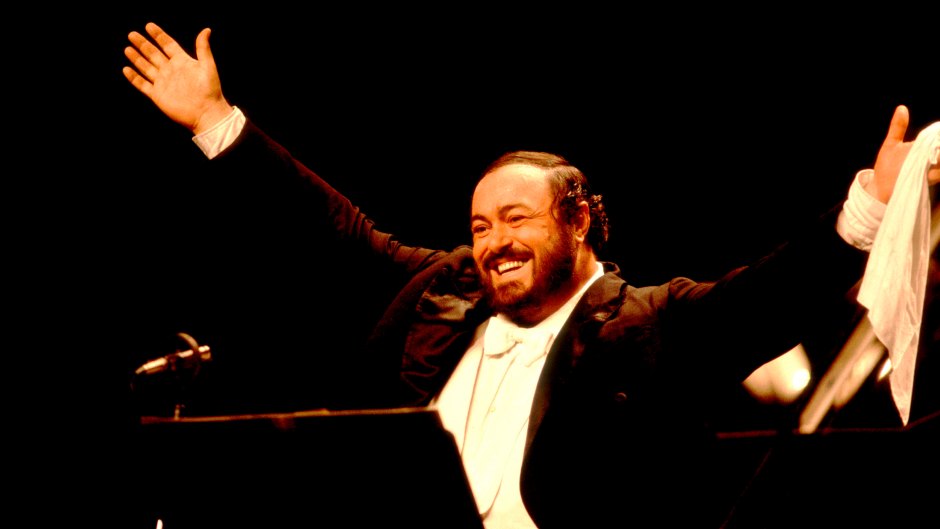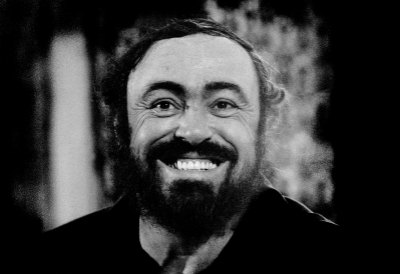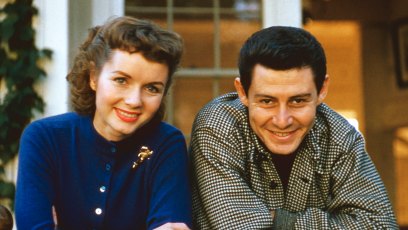
Getty Images
Luciano Pavarotti’s Upcoming Documentary Reveals How the Operatic Legend Never Lost a Hunger for Success
Italian operatic legend Luciano Pavarotti’s life was as passionate and dramatic as any opera. “He was very romantic, and we had many fights, like all couples,” his widow, Nicoletta Mantovani, 49, recently gushed to Closer Weekly in an exclusive interview, on newsstands now. “There was fire in us.”
When she told him she was flying back to Italy from New York after a big argument, he called the head of Alitalia to stop her from getting on the plane, claiming he’d broken his arm. “I went to him and he said, ‘You see! When you leave me, that’s the end of everything!’ Then in the middle of dinner, I saw him take away the bandage! We both started laughing and had a fantastic night.”

There are many more “mamma mia!” moments in Ron Howard’s new documentary, Pavarotti. The film captures his larger-than-life personality through rare footage, family interviews and words from the man known as the People’s Tenor, who grew large from his beloved pasta yet never seemed to grow old.
“One of the greatest advantages of being an artist [is] to be able to always be a child,” the star once revealed. But he also never outgrew a fear of not being able to hit the miraculous high notes that led him to be dubbed King of the High C’s. “It created a lot of anxiety,” Ron told Closer at the film’s New York City screening on May 28. “Before performances, he’d say, ‘I go to die.'”

As a child in World War II–torn Modena, Italy, Luciano suffered a trauma that would affect his outlook on life forever. At age 12, he got tetanus by playing soccer with no shoes and “was in a coma for five days,” Nicoletta recalled. “But he told me he could hear people, and he saw the priest coming for his last blessing. The moment Luciano woke up, he said, ‘I’m not going to waste a minute of my life without enjoying it!'”
And he didn’t, despite years of losing singing contests. “He was an elementary school teacher and sold insurance, so when he was 26 he said, ‘This is the last competition — otherwise I will give up,'” Nicoletta shared. “Then he won, and his life changed.”
In 1961, the year he wed his first wife, Adua Veroni — who is the mom of his daughters Lorenza, Cristina and Giuliana — he began his career as a tenor. Ignoring his stuffy critics, “he used TV to fulfill his No. 1 agenda: to take opera to the world,” Ron said. He filled stadiums and sold more than 100 million records.

To help his cancer-stricken pal José Carreras, he and Placido Domingo formed the Three Tenors, broadcasting one Los Angeles show to 1.3 billion people. And after meeting Princess Diana in the ’90s, he continued her fight against land mines, devoting much of his time to helping kids affected by war, like he’d been. In 1992, he launched his Pavarotti and Friends charity concerts with pop superstars like U2 and Sting.
Though a scandalous affair with Nicoletta ended his 35-year marriage to Adua, she forgave him after he visited their first grandchild. “Time buries everything,” Adua said. “He was a friendly, warm, generous person.” And equally so with his fans, who cheered him at his final February 2006 Winter Olympics performance despite his lip-syncing while he fought the pancreatic cancer that took his life in September 2007. “He got energy from his audience,” Ron said. “That’s what kept him going.”
For more on your favorite celebs, pick up the latest issue of Closer Weekly, on newsstands now — and be sure to sign up for our newsletter for more exclusive news!








































